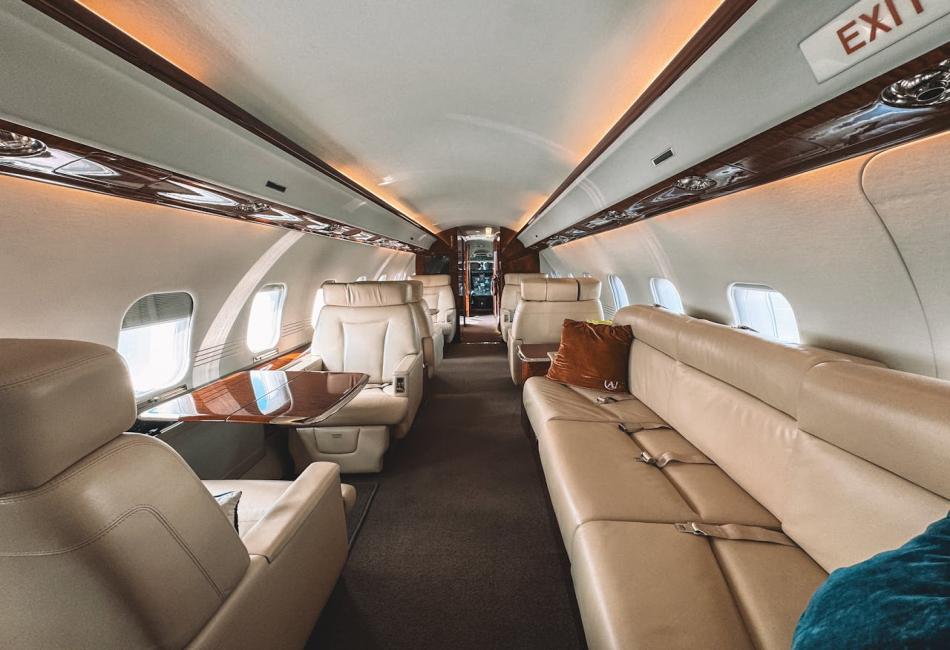Private jet travel offers flexibility, speed, and a first-rate degree of comfort. Still, numerous crucial elements should be considered to make sure the experience fits your requirements before booking a ticket. From the choice of aircraft to openness, knowledge may have a big impact. Before you schedule your next private flight, this page lists five important things to give thought to.
Know the Reason for Your Trip and Its Distance
Your trip’s goal mostly decides the kind of aircraft that is ideal for you. Short business trips might simply call for a small jet; for instance, international or cross-country travel would call for a midsize or long-range aircraft with extra cabin room and in-flight facilities. Think of the passengers and aboard needs, including entertainment, rest places, or offices. Examining the nature of your trip helps you prevent overbooking for a short flight or undervaluation of demands for a lengthy trip by narrowing down the possible aircraft types. Furthermore, in line with your trip schedule, fuel range, baggage capacity, and airport compatibility. Clear planning with regard to these aspects enhances not only the comfort of your trip but also the logistical efficiency. Customizing your aircraft to fit trip criteria creates the basis for more leisurely and efficient travel.
Check Safety History and Operator Certification
Verify that the operator carries a current Air Operator Certificate (AOC) before choosing any supplier. This accreditation guarantees the firm follows national aviation safety guidelines and legal criteria. Reputable companies will also disclose specifics of third-party audits from companies like ARGUS or Wyvern, which assess aircraft maintenance, pilot training, and safety policies. Get details on crew experience and mechanical inspection frequency. Apart from providing peace of mind, these safety certifications show the dedication of a supplier to industry best practices. Make sure your broker links you with licensed and screened operators if you use one. Understanding who is running your flight and looking at safety records helps you prevent unneeded hazards. Ensuring a dependable and professional travel experience from the departure to the landing depends on giving verified credentials priority.
Clear Contract Terms and Pricing
Make sure all expenses are exactly stated in writing when you book a private jet. Along with any extra services like catering or ground transportation, a charter quote should contain hourly flight rates, fuel surcharges, landing fees, and crew wait times. Last-minute schedule adjustments, prolonged delays, or overnight stays might cost more. Additionally crucial is knowledge of cancellation rules and return terms. Based on the time, some operators could charge partial costs or provide credit for the next flight. A properly recorded agreement provides you with complete control over your trip budget and helps avoid billing shocks. Request thorough analysis and don’t be reluctant to challenge any dubious accusations. Open pricing lets you confidently plan and indicates the operator’s professionalism. Knowing the financial terms ahead of time helps to improve general experience and interactions.
Learn About the Flexibility in Scheduling
Private planes can sometimes run from smaller, less crowded airports nearer your departure and destination spots than commercial flights. Find out whether airports are accessible and if they have any operational constraints like restricted hours, slot allocation, or customs procedures. Also, consider whether the airport has FBO facilities—private lounges and specialized services. One main advantage of private travel is flexibility, yet careful planning helps to prevent delays. Find out from your operator whether last-minute schedule adjustments call for further notice. Certain aircraft or paths can call for more extended periods of preparation. Good planning around airport logistics guarantees speedier boarding, more seamless security clearance, and less ground time. This planning increases the effectiveness of your journey, particularly in cases of time that counts.
Talk About Passenger Preferences and Onboard Amenities
Every jet presents a different cabin layout and sets of facilities. Make sure the aircraft you select meets your expected degree of comfort and utility. Verify access to Wi-Fi, USB ports, or conference-style seats when on business travel. Ask about entertainment systems, food options, or overnight flight sleeping quarters for leisure travel. Share this early so proper accommodation may be made whether dogs, children, or travelers with medical requirements are onboard. Certain airplanes can accommodate certain dietary needs or temperature-regulated settings for drugs. Your experience will be better the more specifics you can share. One main advantage of private travel is customized service; good communication guarantees that the trip is suited to every passenger’s requirement. Reviewing these preferences ahead of time guarantees everyone on board comfort and care.
Conclusion
Arranging a private jet calls for more than just choosing a flight duration. Understanding the demands of your journey, validating operator safety, checking prices, assessing airport choices, and verifying onboard preferences helps you to build a smooth and safe experience. Careful preparation guarantees that your trip runs from beginning to end on comfort as well as performance.
